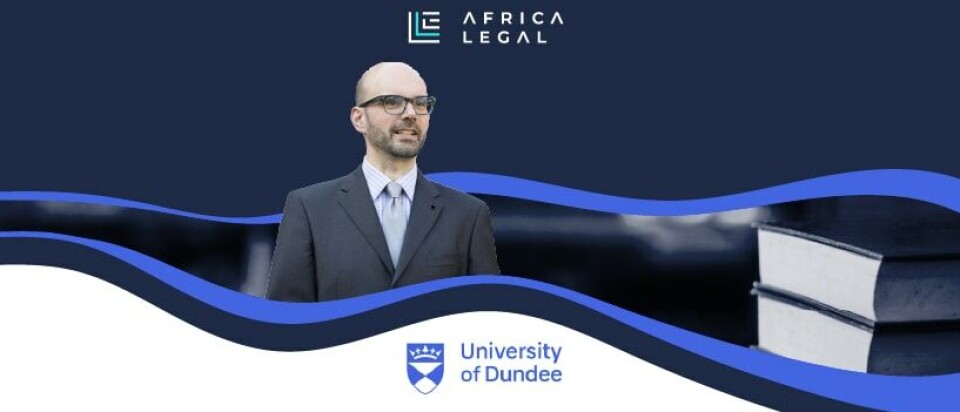Copyright : Re-publication of this article is authorised only in the following circumstances; the writer and Africa Legal are both recognised as the author and the website address www.africa-legal.com and original article link are back linked. Re-publication without both must be preauthorised by contacting editor@africa-legal.com
Ties to Africa

When African students think law, they are increasingly thinking about the University of Dundee in Scotland. Dundee Law School and CEPMLP have strong relationships with legal communities across Africa making it a good fit for African students and legal professionals.
With a long-running history of international excellence, the university continues to climb in the rankings, now placing as one of the top 15 law schools in the UK[1] and one of the top 10 places to study energy law in the world[2], at the renowned Centre for Energy, Petroleum, Mineral Law and Policy (CEPMLP). It has helped to launch the careers of many notable legal minds both in Europe and Africa, including Tim Eicke QC, the British judge at the European Court of Human Rights and CEPMLP alumnus, John Peter Amewu, Minister in the Ghanaian government since 2017.
The university’s involvement with African students has spanned many years, and in 2019 it hosted two mooting competitions in Nairobi. These were well received and rapidly spread in numbers and geographic distribution – to Mombasa, Lagos, Accra and then virtually in 2021 to Uganda and Zimbabwe for a truly pan-African competition involving more than 20 leading schools. For these moots, Dundee provides training to the students that is practical, focused on public speaking and develops core legal skills. Peter McEleavy, Professor of Law and Barrister says, “In Africa, we are the only British University currently doing this. We are proud of this because it gives students exposure to the study and practise of law in a simulated courtroom environment.”
Inspired by their experience in the competition, participants have gone on to study the English LLB at Dundee Law School. The University is committed to widening access to students from varied socio-economic backgrounds through generous scholarships.
The focus of Dundee’s Law School and CEPMLP is international, with innovative offerings that cater to a wide range of African students who are pursuing both
international legal careers and careers in their home countries. At undergraduate level, Law students can study LLB degrees in English Law, Scots Law or both, and there is also a graduate entry 2-year LLB. At postgraduate level, Law and CEPMLP students can pursue LLMs and PhDs and have the option to spend the semester studying at partner institutions overseas or doing an internship.
The University of Dundee has many draws for international students – it’s a campus university within a small city and has a low cost of living – students can quickly find their feet, make friends and feel at home.
“It’s welcoming, safe and we offer lots of engagement and support. We really put the students at the forefront of what we do, and this is reflected in our rankings. Students have lots of contact with academics, class sizes are small and we are able to offer a very high degree of support, much more than one would find in a larger institution,” says Professor McEleavy.
Employability is at the heart of the university’s commitment to its students. LLB graduates commonly return home to complete their legal training while some stay to gain valuable experience in the UK. Law and CEPMLP LLM graduates have an impressive track record in securing prestigious appointments and internships at leading international organisations including the United Nations, the International Energy Agency, OPEC, the Council of the European Union, The European Court of Human Rights and the Permanent Bureau of the Hague Conference on Private International Law.
When looking towards the future, CEPMLP and Dundee Law School aim to become even more international and career focused. Professor McEleavy says, “we plan to invest more in what we can provide for our international students. We already have a great professional focus in our courses and we want to develop that further.”
“Employability,” he concludes, “is the most important issue for today’s Law students and that is at the heart of what we do in Dundee.”
[1] Guardian University Guide 2021, Complete University Guide 2021 and Times & The Sunday Times Good University Guide 2020
[2] LLM Guide 2019 & 2020
To join Africa Legal's mailing list please click here
